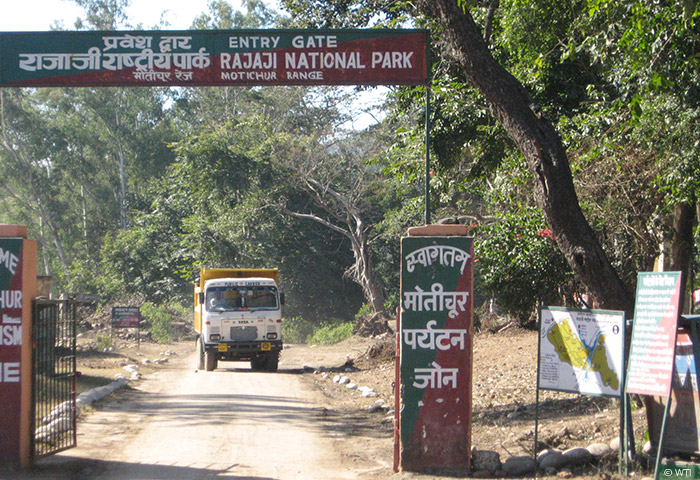Rajaji Tiger Reserve, Uttarakhand, January 20, 2017: Wildlife Trust of India (WTI) today announced that the Chilla-Motichur Elephant Corridor, a vital habitat linkage between the Chilla and Motichur Ranges of Rajaji Tiger Reserve, has now been declared free of human habitation.
 Land handover certificates were previously distributed to residents of Khand Gaon III in Lalpani, Rishikesh, as part of the corridor securement process
Land handover certificates were previously distributed to residents of Khand Gaon III in Lalpani, Rishikesh, as part of the corridor securement process
The securement of this corridor is a major conservation milestone. It marks the culmination of a 12-year process during which the Uttarakhand Forest Department and Government of Uttarakhand worked with WTI to build a consensus for voluntary relocation among the inhabitants of Khand Gaon III, a village based within the corridor. The villagers have now all been relocated to new homes in Lalpani, Rishikesh.
WTI’s work on the Chilla-Motichur Elephant Corridor is part of a larger ongoing campaign to secure #101Corridors across the country.
Major artefacts that remain in the corridor are a railway line, an ammunition dump, a hydropower canal and the busy National Highway 58.
Over several years now, WTI has worked with Rajaji Tiger Reserve and Indian Railways authorities and created a successful model to prevent the deaths of elephants and other wild animals due to train-hits in the corridor. Joint-patrolling is conducted on critical stretches of the track and an automated Animal Detection System has been field tested to alert locomotive drivers in time to prevent accidents. The National Highway Authority of India is constructing a vehicle overpass in the corridor area and this, it is hoped, will resolve the issue of high traffic on the highway.
 Entry gate to the Motichur Range, Rajaji Tiger Reserve
Entry gate to the Motichur Range, Rajaji Tiger Reserve
WTI’s work on the Chilla-Motichur Elephant Corridor is part of a larger ongoing campaign it is running in partnership with various state forest departments to secure 101 elephant corridors across the country.
Elephant corridors are used by many wild species, especially large mammals like elephants and tigers, to move between protected forests in search of food and water. When corridors are not present or encroached upon by humans, animals are forced to move through human-use areas, leading to human-wildlife conflict. Such conflict, especially with elephants, causes significant loss of human and animal life, and damage to crops and property worth millions of rupees each year.